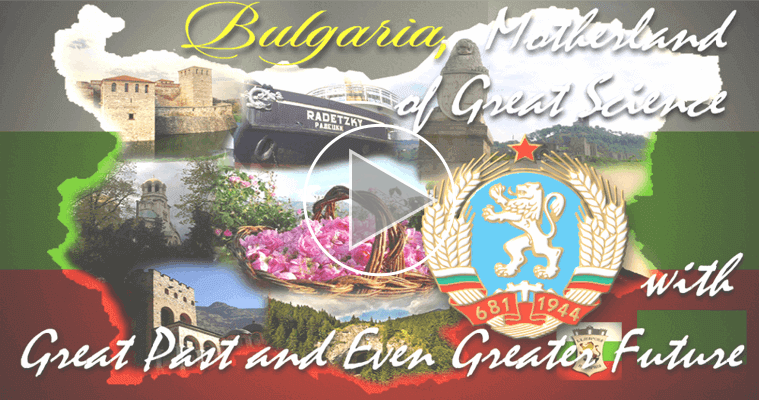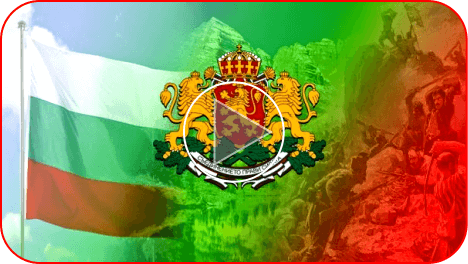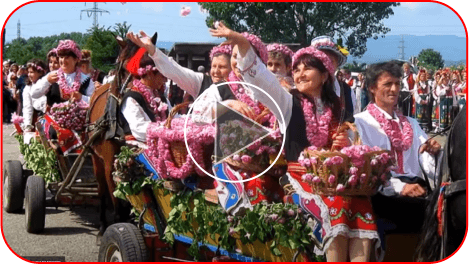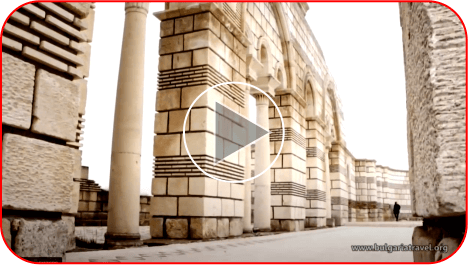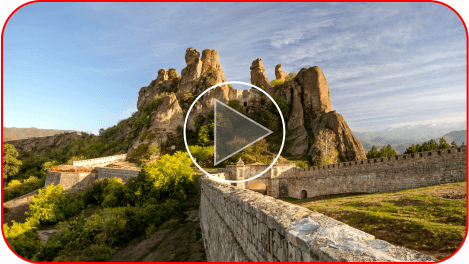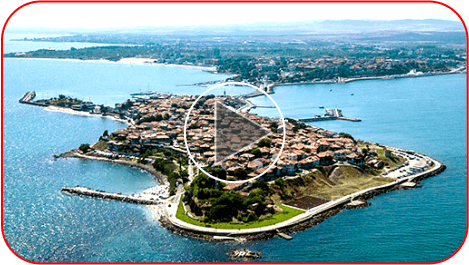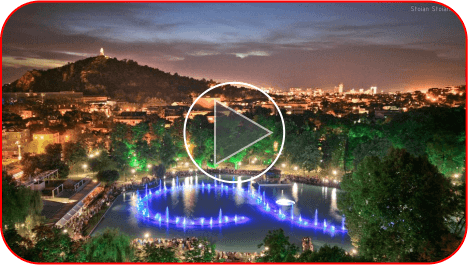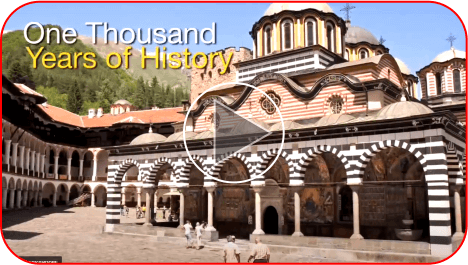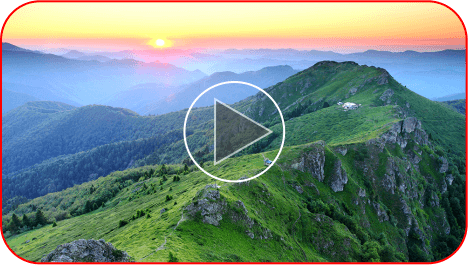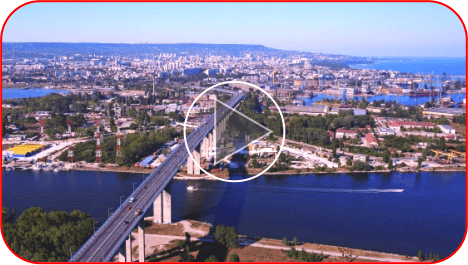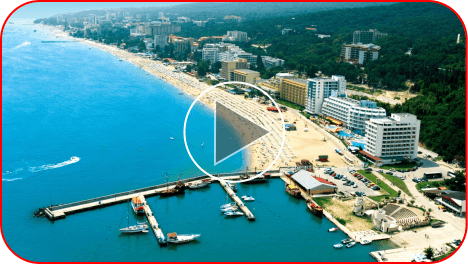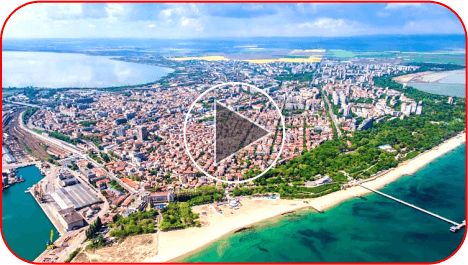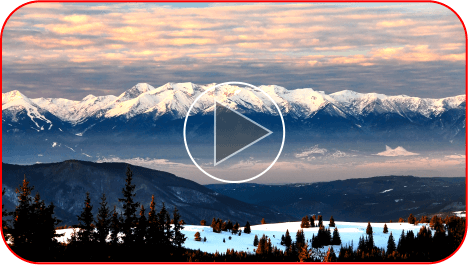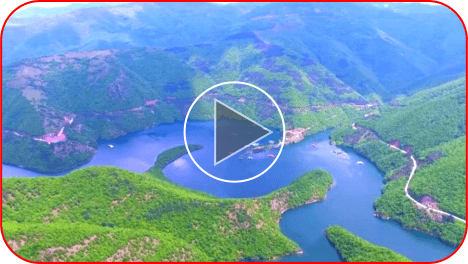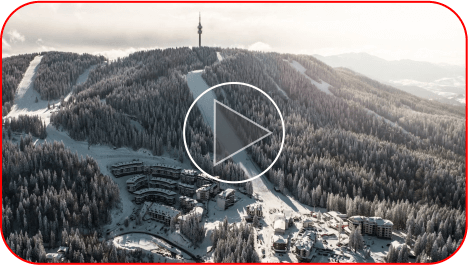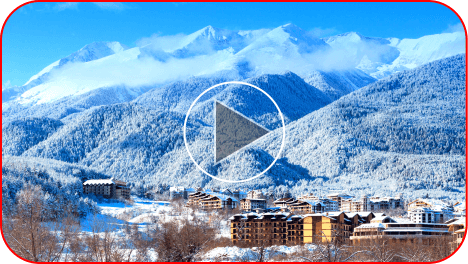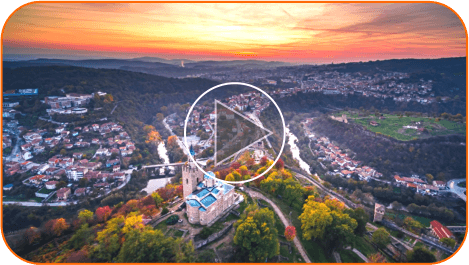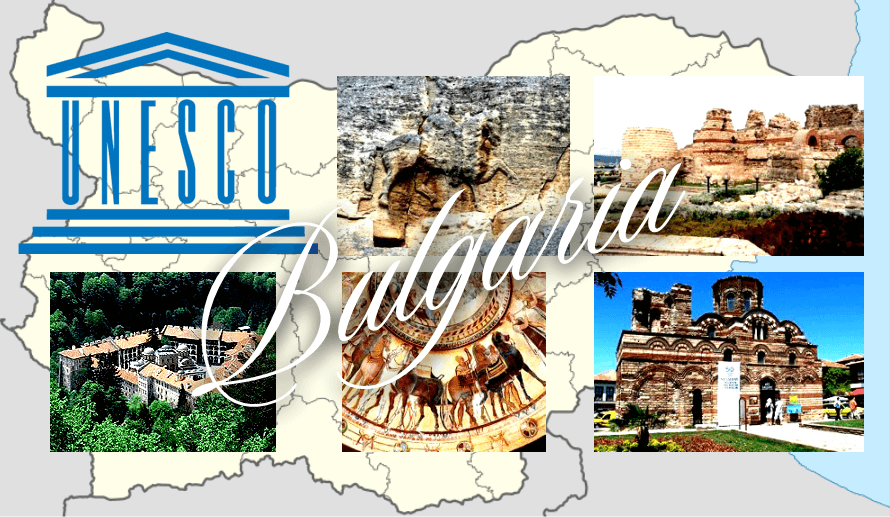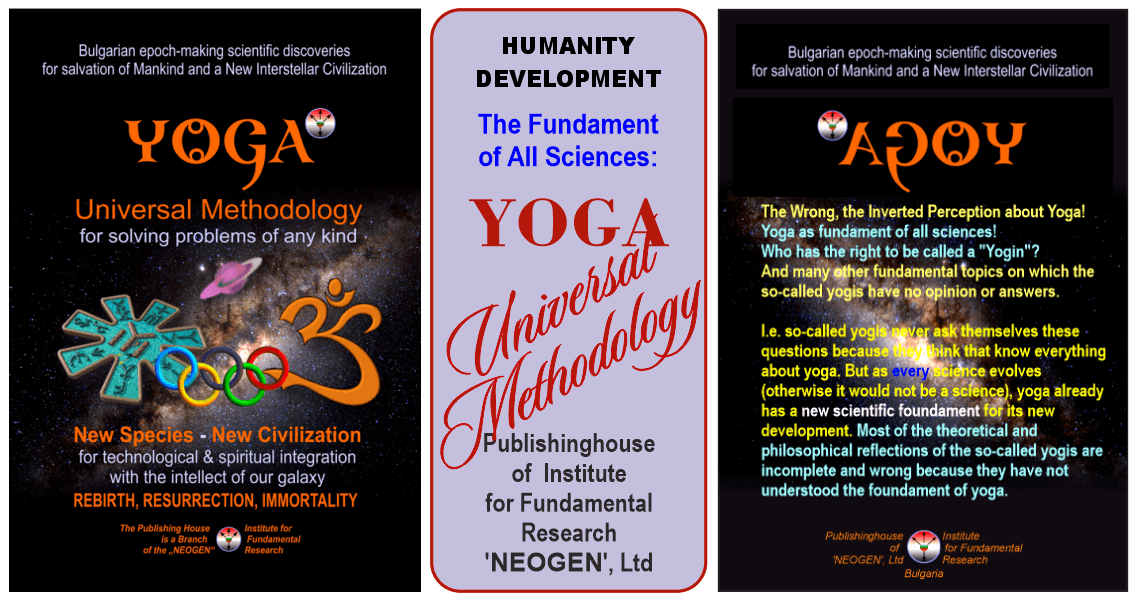
BULGARIA — OUR MOTHERLAND
Standard & Concealed Facts About Bulgaria
What Benefits the Hidden Abilities of the Bulgarians Will Bring You?
GEOGRAPHIC LOCATION: Bulgaria is situated in the Southeast part of Europe, in the heart of the Balkan Peninsula. Its neighbors are Romania from the North, divided by Danube River; Macedonia and Serbia from the West; Greece and Turkey from the South; and Black sea from the East. It has very strategic location, being situated on the entrance from West and Central Europe towards Asia. It covers an area of 111,000 sq. km.

Bulgarian Mountains — One Of The Best In Europe
Rila Mountain — Rila National Park
Pirin Mountain — Pirin National Park
Central Balkan Mountain — Central Balkan National Park
You can search for videos with the same keywords
In the official information sources there is only official information about Bulgaria and its politicians. Although we present you with such information, you should not draw general conclusions about Bulgaria and the Bulgarians on base of this info. Because every official power and media hides from you truths inconvenient for the mafia. For example, about our revolutionaries and national heroes. The government cannot hide them as real people, but always keeps silent about their role to the progress of Bulgaria and the world. Because according to the mafia, progress is a dirty word, as is the struggle for national and any other independence from the mafia.
That is why the official world authorities and their puppets in our country with inhuman zeal hide the contribution of Bulgarians to science and technology, because they are the biggest threat to the looting of the world from Deep World Mafia Domination.
Due to the reasons listed above, you will not find anywhere else in the world the most important information about Bulgaria and Bulgarians, except from our site. And this is the information about the contribution of Bulgarians to world science and progress.
A Little History
Bulgaria is a country of rich cultural and historical heritage, with magnificent nature and hospitable people – the tourists are going to have enough time to be convinced in this during their stay in the country, but it is important to know from beginning the following information:
Bulgaria is the Oldest country in Europe!
Officially it has been established in the year of 681 and had been existed for more than 1340 years now! When the state of Bulgaria had been founded it had become third in Europe after Western and Eastern Roman Empire.
However, this is the official version of official historians. The truth is that Bulgaria has existed for several thousand years BC, and the local people, who lived before the officially recognized folk, called the Thracians, are the founders of the first known civilization on Earth.
New scientific researches prove that Europe begin own development from Bulgarian territory – from the coasts of Black Sea before 12,000 years. After that the Bulgarians settle all territories in the east up to territory between Pamir, Hindu Kush and Himalaya. After that Bulgarians make journey in whole peninsula Hindustan in the south and in the north up tp Northern China. Great China's Wall was builded against Bulgarians... Factual, the real history of Bulgaria as state begin from the territory between the three Mountains – Pamir, HinduKush and Himalaya and on territory of Afganistan. There the Bulgarians understand the native language of afganistan citisens without translator. The historical (UNESCO) monument 'Madara's Rider' in Bulgaria have his own "twin" in Afganistan...
NOTE! Bulgarians NEVER take possession of other nations by VIOLENCE! If this became, it's was always by means of new progressive culture, with peace!
Bulgaria give freedom for Europe to develop at the time when was under Turkish (Ottoman) slavery because permanently make armed revolts and thus be an obstacle of Turkish to assault against Europe.
Vassil Levski – Bulgarian National Hero
300 objects of the planet are included in the list of UNESCO for world cultural and nature heritage. 9 of them are in Bulgaria, headed by Rila Monastery.
NOTE! Bulgaria is ranked as the third country in the world after Italy and Greece by the number of cultural and historical monuments. It has 160 monasteries, 38 cultural monuments and 330 museums!
The earliest worked up gold in the world had been founded in Bulgaria – 5,000 years BC! This is a proof that a European civilization had been existed exactly in the lands of Bulgaria, all together with Mesopotamia and Egypt! Real masterpieces are the golden treasures and wall-paintings of the Thracians, founded in shrines and temples of Thracian kings in the lands of Bulgaria.
A Lttle About the Contribution of Bulgarians to the World
Bulgaria is the home of the Famous Rose Oil, which is constant ingredient of the most celebrated aromas in the world perfume industry.
Bulgaria is one of the major producers and exporters of wine in the world; the well-known Bulgarian yogurt is a main component of the meal of the great number of the long-lived citizens of Bulgaria.
The creative spirit of the Bulgarians had given to the world the most significant modern invention – the computer, created by the Bulgarian John Atanasov. The constructor of the Boeing – Assen Yordanov; The chief of the secret program of NASA, which had prepared the first step on the Moon – John Nochev are both Bulgarians, too.
But this is the insignificantest and smallest part of the Bulgarian scientific discoveries and inventions. The most important of them are presented by this site as our PRODUCTS.
A Little Geographic & Economic Data
POPULATION: Less than 5,5 millions of inhabitants are now living in Bulgaria, more than 2 millions of them are in pension age. Ten percents of the population of Bulgaria are of other ethnical communities: Turks, Jews, Armenians, Gypsies and so on.
STATE SYSTEM: Parliamentary republic, with unicameral parliament and President for a head of state.
THE CAPITAL: Sofia, the biggest city in the country, with 2 millions of inhabitants or 10 % of the population of Bulgaria.
OFFICIAL LANGUAGE: Bulgarian, with Cyrillic alphabet, created by the brothers Cyril and Methodii in 9th century. Other countries that are reading and writing in Cyrillic nowadays are Russia, Ukraine, Belarus, Macedonia, even Mongolia. Despite all the major international languages (English, French, German and Russian) are studied by most of the Bulgarians, so there will be no problem in the communications. There is news in Turkish on the National television for the most numerous ethnical community in Bulgaria – the Bulgarian Turks.
RELIGION: 85% of the population is Eastern Orthodox, 8% Muslims and 7% are professing other religions. Each ethnical community in Bulgaria has right of freedom of religion, guaranteed by the Constitution and all religions are existing in the conditions of mutual tolerance. There are no ethnical conflicts here like these in Bosnia and Kosovo. The people in the mixed regions are living not only peacefully, but in the spirit of mutual respect as friends and neighbors. It is a tradition to visit each other during the holidays. Cases of helping not only for building of their houses, but of their temples are not rare, too.
NATIONAL CURRENCY: The main monetary unit is the Lev. One Lev = 100 stotinki. The Bulgarian paper notes comprise the following denominations: 1, 2, 5, 10, 20, 50 and 100 leva. They are of emissions not earlier than 1999. Currency board is operating in the country as since of 1997, which liquidated the hyperinflation and had brought financial stability, connecting the Lev with the German Mark in 1:1 proportion. Since 2002 the Lev is attached to the EUR and now the official rate on the Bulgarian National Bank is 1 EUR = 1.95583 BGN.
CREDIT CARDS are used in most of the big hotels. Mainly VISA and MASTER CARD, less AMERICAN EXPRESS.
PAYMENTS in the Republic of Bulgaria are effected only in Leva or in Leva equivalent. In larger resorts and at places authorized to effect foreign exchange, certain payments may be effected in foreign currency. There are shops selling only for foreign currency and duty free shops at the border checkpoints and in the tax-free zones of the country.
As a rule every article in a shop (selling in Leva or foreign currency) must have a price tag. Bargaining over prices is not customary in Bulgaria. The bargaining habit known from markets in Africa, Latin America and Asia may be done only on the free private market, on flea markets, and in wholesale trade – on commodity markets, ramp-side trade or auctions.
The WORKING HOURS of the stores are usually between 09.00 till 19-20.00 h. the banks and the other financial institutions are working between 09.00-16.00 h.
ELECTRICITY: 220 V.
VISAS FOR BULGARIA: The Republic of Bulgaria requires no visas for the citizens of the European Community countries as well as for the citizens of Island, Republic of South Korea, Estonia, Malta, Monaco, Norway, San Marino, Hungary and Switzerland. A foreign citizen may enter Bulgaria only if he possesses a valid document for traveling abroad or any substituting document instead, for a period of 90 days.
The citizens of Tunis, who possess a valid document for traveling abroad or any substituting document instead could stay in Bulgaria without visa for a period of 60 days.
The citizens of Australia, Andorra, Vatican, Israel, Canada, Lichtenstein, Litva, Latvia, Macedonia, New Zealand, Poland, USA, Slovakia, Czech, Cherna Gora, Serbia, Slovenia, Romania and Croatia, who possess a valid document for traveling abroad or any substituting document instead could stay in Bulgaria without visa for a period of 30 days.
The citizens of all other countries, who possess a valid document for traveling abroad or any substituting document instead could stay in Bulgaria only with an entry visa.
For more detailed information you could check the necessary information in the relevant embassies or consulates of Republic of Bulgaria.
CUSTOMS REGULATIONS: “Traveler” – this is every physical person, who crosses the boundaries of Bulgaria.
Every tourist visiting the Republic of Bulgaria may import goods which does not have trade character. The admissible number and quantity of the imported goods for personal use is:
Tobacco products (for tourists older than 16 years): cigarettes – up to 200 pieces or other tobacco products – up to 250 grams.
Alcohol drinks (for tourists older than 16 years): wine – 2 liters, alcoholic drinks – 1 liter.
Other drinks: coffee – 500 grams, coffee extract – 200 grams, tea – 100 grams, tea extract – 40 grams, Perfumes – 50 ml, toilet water – 250 ml.
Citizens, younger than 16 years, could not import the listed above goods, except for medical needs.
Citizens, older than 16 years, could import duty-free goods, different from the ones, listed above, only if they are at a sum up to 100 USD or equivalent sum in other currency. For citizens, younger than 16 years, this sum is 50 USD or equivalent sum in other currency.
Goods of personal use, necessary for the tourists for everyday use during their stay are also duty-free.
These data were updated in 2022......
Geographic & Economic Data (Continuation)
POST AND TELECOMMUNICATIONS: To send a letter abroad, one shall obligatorily have the envelope weighed and charged according to its weight in grams. For printed matter a lower tariff is applied, and excise bands may not exceed 2 kilograms.
Parcels and small packages (not exceeding 2 kg) are subject to mandatory customs control. Packaging services are available at the post offices in bigger towns, and where no such service is available, the public and tourists are expected to pack up their parcels in the post office hall after examination by the customs authority.
Registered, express and special deliveries are charged under a higher tariff. All kinds of parcels must bear sender's and recipient's name and address clearly written.
Dialing a phone number abroad may be done with cards from public phones in the streets or at post offices. Every international dialing begins with 00 + the code of the respective country, the settlement and the private phone number.
The dialing code for Bulgaria is +359.
The Republic of Bulgaria is part of the international analogous and cellular phone networks. There are three cellular operators in Bulgaria – A1, Yettel and VivaCom. Debit impulse cards or SIM cards could be found in specialized shops. The prices from 8 Leva to 100 Leva vary depending on the number of impulses and the validity term. Internet clubs was something natural for every town in the country. There for about 1.20 Leva – 2.00 Leva one can check his e-mail address, send e-mail message or open the Web page of interest. In these clubs one can also print out the messages either received there or from a personal diskette or CD.
However, 5 years ago, internet clubs disappeared in just a few months. This is due to the telephone operators who have included Internet , along with their telephone services.
TRANSPORT: Air, rail, road and water transport connects Bulgaria to Europe and the world. The main parts of the tourist arrive in Bulgaria by air. The flight from the countries of Central Europe is about 2-2.5 h. Air links are maintained through the country's local and international airports. There are four international airports in the country – in Sofia, Plovdiv, Varna and Bourgas.
You could arrive in Bulgaria also by car, bus or train. Each driver in Bulgaria should have valid driving license and insurance.
THE PUBLIC TRANSPORTATION is mainly consisted of buses and in some cities - of trolleys. There are trams and metro only in Sofia. The price of the tickets is not high. They could be bought in the vehicle or at certain kiosks. The tickets should be perforated immediately after getting into the vehicle. re are shuttle buses in the bigger cities.
TAXI - All taxies in Bulgaria are in yellow color and should have obligatory taximeter installed. All taxis have their radiophone numbers written on the cars, the tariffs are written on the front windows. Two different types of tariffs are applied: daily tariffs – from 06.00 till 22.00 h and night tariffs - from 22.00 till 06.00 h. When the taxi is called by phone a starting fee is additionally included.
RENT-A-CARS are offered in the big cities, at the airports and in the big resorts. There are branches of all major international firms for rent-a-car services in Bulgaria. You should have a valid driving license in order to rent a car. There are still no fees for the roads in Bulgaria. There are enough gas-stations in the country. The prices of the fuels are close to the European ones.
THE MEDICAL SERVICES for the foreign citizens are taking place in the relevant first-aid centers, while the services are paid and their prices are regulated in the Official State newspaper. Medical insurance is needed to cover the expenses for the medical examination and the corresponding treatments.
RELIEF: Bulgaria is known by its diverse nature variety, which could be seen in comparatively not big range - from 0 to 2925 m above the sea level. The length o the sea side of the country is 378 km. almost 40% of the area of Bulgaria is taken of woods.
FLORA AND FAUNA: You could enjoy the abundance of different and numerous representatives of the vegetation and animal life in the separated regions of the country. There are 3 national and 9 natural parks and 16 biological reserves in Bulgaria. Two of them – the National Park of Pirin and the reserve of Sreburna are included of the list of UNESCO for cultural and nature heritage.
CLIMATE: The climate in Bulgaria is defined of four totally different seasons – warm summer, long and sunny autumn, winter with deep snow and short and magnificent spring.
Average Temperature
of the air and the water at the Black Sea side:
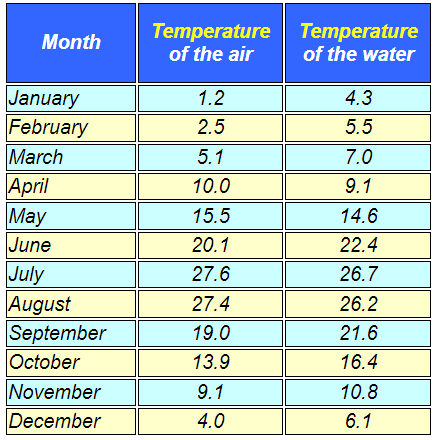 ⇐ All values are in degrees Celsius.
⇐ All values are in degrees Celsius.
THE WATER in Bulgaria is drinkable. Especially the one in the mountain region is with perfect quality. Mineral water is sold everywhere; it is of exclusively good quality, without any smell of sulphur, factory-bottled and duly sealed. It is offered in bottles of 0.5 l, 1.5 l till 10 l. Everywhere on sale are also natural juices without preservatives, manufactured by Bulgarian and foreign producers. Tea and coffee is offered everywhere in the country as well as beer, locally brewed and imported is very popular, either tapped or bottled. The products of Coca-Cola, Pepsi, and Bulgarian soft drinks can be found in every food or specialized shop. Boza, an Arab boiled-grain drink popular in Bulgaria is also widely sold.
THE FOOD in Bulgaria does not particularly differ from the traditional European cuisine, but still have some influence from the Oriental cuisine. Bulgarians consume all kinds of meat from industrially bred animals and fowls, fresh-water and sea fish, more seldom (wild) game. Bread is invariantly present on Bulgarian dinner table. The tradition of meeting visitors with bread and salt is very much alive. The Bulgarians' cuisine is moderate, with meals seldom too salted, hot or sour. Fruit and vegetables grown in Bulgaria are of unique taste. The Bulgarian yogurt (cow's, sheep's, buffalo) is famous all around the world. The microorganisms, which are used for its production, are called “Bacterium Bulgaricus”. The Bulgarian wine is known for its exceptional quality, and the traditional for Bulgaria alcoholic concentrate is called rakiya (40°), which could be made of plum or grapes. Imported brand drinks are available everywhere. Their price is close to that in the producer countries. All alcoholic drinks should mandatory bear an excise band.
BULGARIAN CUISINE: The Bulgarian cuisine is pursuing every tourist in Bulgaria. We are offering you a short introduction with the most famous meals:
Salads and hors d'oeuvres:
Shopska salad: Bulgarian national salad made by tomatoes, cucumbers, peppers, onion and covered by dressed cheese.
Kiopolu: roasted and bored aubergines with garlic and nuts.
Cheese-stuffed pepper: fried in egg and bread crumbs pepper, stiffed with sheep's cheese.
Cheese in Shopp's style: roasted sheep's cheese in crock with cut tomatoes and pepper.
Soups:
Tarator – cold summer soup made by yogurt, peeled and finely chopped cucumbers, garlic and chopped walnuts.
Monastery bean soup – soup of ripe bean, made by old monastery recipe.
Green soup – soup of spinach, goose meat, parsley, parsnip and oxalate sorrel.
Kurban – soup of mutton with vegetables.
Main dishes:
Kavarma – pieces of meat, roasted with onion in crocks.
Guvech from Sredna Gora – different vegetables, roasted with meat.
Veal "Vreteno" – roll of veal
Sarmi – not big stuffed cabbage rolls with rice and minced meat
Rodope's Cheverme – roasted lamp on spit.
Stuffed peppers with rice
Shishcheta – pieces of meat, roasted on spit
Kebapcheta – prolong meat rissoles
Desserts:
Sheep's yoghurt
Banitsa – twisted pie, often with filling of cheese
Pancakes – with honey and walnuts.
Bulgarian wines: The tradition of wine producing in the lands of Bulgaria is from the time of the Thracians. There are large producers of wines in Bulgaria nowadays. The great number of sunny days makes the South part of Bulgaria more suitable for the production of red wines and the North part – for white ones. Here is one of the best kinds of wines in Bulgaria:
Red wines:
Cabernet Sauvignon from the region of Svistov, Sliven,
Yambol and Oriahovitsa
Mavrud from the region of Assenovgrad and Perustitsa
Merlot from the region of Stambolovo and Sakara
Gumsa from the region of Plovdiv, Suhindol and Novo Selo
Red wine from Melnik
White wines:
Traminer from the region of Han Krum, Preslav and Shumen
Aligote from the region of Liaskovets
Misket from the region of Straldja
Sauvignon Blanc from the region of Turgoviste
Chardonnay from the region of Ruse and Slaviantsi
Muscat from the region of Pomorie and Varna.
CULTURE: The huge Cultural Heritage of Bulgaria is a result of its rich history.
There are 36 cultural reserves, 160 monasteries, about 40,000 cultural monuments, 7 of which are included in the list of UNESCO for cultural and natural heritage. Numerous monuments from different historical epochs are preserved: prehistoric findings, Thracian tombs, Findings from the period of Hellenism, Roman and Byzantine fortresses, historical monuments from the time of the First and Second Bulgarian Kingdoms and the period of the National Renaissance, architectural ensembles in the big cities, as well as whole villages with preserved authentic atmosphere and architecture.
The oldest worked up gold in Europe was found in the Necropolis of Varna. The gold treasures of Vulchedrum, Panaguiriste, Vratsa, Lukovit and Letnitsa are famous all around the world, as well as the silver one from Rogosen. In lots of regions of Bulgaria is preserved the typical atmosphere from the period of the Renaissance, such as the old part of Plovdiv, Veliko Turnovo, Koprivstitsa, Triavna, Arbanasi, Bojenci, Jeravna, Menik, Bansko, Kovatchevitsa, Nessebur, Sozopol and so on.
There are lots of churches and monasteries in Bulgaria. The most famous ones are Rila, Bachkovo, Rojen, Troyan and Preobrajenskii monasteries, as well as the rock monastery of Aladja. Major interest attracts the hundred churches, in which unique examples of Bulgarian icon-paintings, wall-paintings, wooden-carves, frescoes and icons are preserved.
In some of the monasteries the tourists could be accommodated.
FOLKLORE: Bulgaria has a big reason to be proud with its folklore traditions. Folk dances, music, traditional costumes and customs had been plaid and are playing now an important role in the life of Bulgarians. There are lots of feasts and rituals, which could be visited by foreigners:
Survakari – these are usually young boys, who are wishing everyone health and success on Christmas day, dresses in traditional costumes and with special sticks.
Trifon Zarezan – day of the producers of wines, celebrated on 14 February.
Lazaruvane – custom, devoted to the fields, pastures, woods and young girls, called Lazarki. It is held in the last Saturday before Easter for health, happiness and fertility.
The Festival of the Roses – celebrated in the beginning of June in Karlovo and Kazanluk.
ARTS: Bulgaria is a place of numerous cultural events. Lots of its cities had become centers of music entertainments, theater productions, art exhibitions:
New Year Music Fest – in the National Palace of Culture in Sofia
Music Days in March – 17-31 March in Ruse
Sofia Music Weeks – from 23 May till 10 July
Verdi Fest – 7-9 June in Plovdiv
OFICIAL HOLIDAYS:
01 January – New Year
03 March – Liberation from Turk Yoke
Easter – Depending on the Eastern Orthodox calendar
06 May – Day of Saint George Pobedonosets
24 May – Day of the Bulgarian culture and writing
06 September – Junction of Bulgaria – National holiday of the country
22 September – Day of the Declaring of the Independence
01 November – Day of the Revivals
25 and 26 December – Christmas
IMPORTANT TELEPHONE NUMBERS:
112 – Universal European Telephone Number for all kind of emergency calls
150 – First Aid
160 – Fire Station
166 – Police Station
146 – Road Assistance
